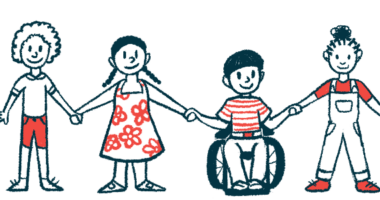Fycompa May Open to Younger Children With Select Seizures in Europe

The Committee for Medicinal Products for Human Use (CHMP), an arm of the European Medicines Agency (EMA), recommended lowering the age limit of the anti-seizure medication Fycompa (perampanel) to 4 for children with focal-onset seizures and to 7 for those with primary generalized tonic-clonic seizures (PGTCS).
Eisai, Fycompa’s maker, announced the European Union (EU) opinion in a press release.
Providers in the EU may currently prescribe Fycompa — available in tablet and oral (liquid) suspension formulations to be taken once a day — as an adjunctive, or add-on, therapy for both types of seizures in children 12 and older.
The U.S. and Japan already approved the medicine for treating focal seizures in children ages 4 and older. The recommended expansion, however, would likely make the EU the first territory to allow Fycompa’s use in PGTCS patients under 12 years old.
A final decision rests with the European Commission, which generally accepts CHMP recommendations.
Fycompa is an oral anti-seizure therapy approved in more than 70 countries. While the mechanisms behind its anti-seizure effects are not well-understood, Fycompa is known to block AMPA receptors. These are specific proteins involved in the transmission of excitatory signals between nerve cells in the brain that are implicated in epilepsy.
Eisai supported its license extension request with results from two clinical studies. The global Phase 3 “Study 311” trial (NCT02849626) evaluated Fycompa’s safety, tolerability, and effectiveness as an add-on therapy in 146 children ages 4 to 11 with poorly controlled focal seizures or with PGTCS.
Fycompa’s safety and effectiveness appeared comparable to those previously reported with older patients. The most common side effects reported were drowsiness, the common cold, dizziness, irritability, and vomiting.
The Phase 2 “Study 232” trial (NCT01527006) took place in the U.S., and assessed Fycompa’s safety, effectiveness, and pharmacokinetics — how a medicine is absorbed, transported throughout the body, and excreted — as an add-on therapy in epileptic children ages 2 to 11.
Neither age nor weight appeared to affect Fycompa’s pharmacokinetics in this study, suggesting that children, adolescents, and adults benefit equally from the same dose.
However, more children in the 7 to 11 range were seizure-free at the end of this study (36.4%) than were those ages 2 to 6 (27.3%). Fever, upper respiratory tract infection, vomiting, and irritability were the most commonly reported side effects.
An earlier study showed that Fycompa reduced seizure frequency among adolescents with Dravet syndrome, where it was also used as an add-on therapy.
Esai is also investigating Fycompa’s use in Lennox-Gastaut syndrome (LGS). The company is assessing the medication’s effectiveness in reducing the frequency of drop seizures in up to 142 LGS patients ages 2 or older in the Phase 3 trial called Study 338 (NCT02834793).
Recruitment for that study, taking place in the U.S., Europe, Australia, and Asia, is currently open.
Eisai is also developing an injectable form of Fycompa.






